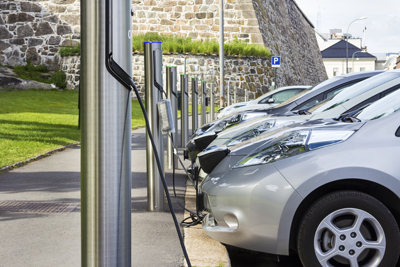The White House opened applications March 14 for a $2.5 billion funding program to expand EV charging and alternative fueling infrastructure in America's urban and rural communities.
Created by the Bipartisan Infrastructure Law signed in 2021, the Charging and Fueling Infrastructure (CFI) program provides $2.5 billion over five years to eligible applicants, which include states, cities, local agencies and tribes.
The first round makes available up to $700 million from fiscal years 2022 and 2023 funding to strategically deploy publicly accessible EV chargers and hydrogen, propane or natural gas fueling infrastructure in urban and rural communities, as well as along designated Alternative Fuel Corridors (AFCs).
The EV chargers and alternative fueling infrastructure will be placed along designated highways, interstates and major roadways, as well as in downtown areas and neighborhoods, particularly in underserved and disadvantaged communities.
The grant funding is divided into two categories: a $1.25 billion community program for EV charging and alternative fueling infrastructure built on any public road or other publicly accessible locations such as schools or parks, and a $1.25 billion corridor program for projects along designated alternative fuel corridors. Applications are due May 30 for both categories.
The CFI Discretionary Grant Program builds on an additional $5 billion provided to states over the next five years through the National Electric Vehicle Infrastructure (NEVI) Formula Program and is designed to fill in EV charging gaps to achieve President Joe Biden's vision of a cross-country road trip compatible with EVs.
The Biden administration said the funding opportunity is a "key step" toward achieving the goal of building a national network of 500,000 public EV charging stations. As of March 14, the U.S. had nearly 133,000 public charging outlets scattered across 51,537 station locations, according to Energy Department data.
"Extending EV charging infrastructure into traditionally underserved areas will ensure that equitable and widespread EV adoption takes hold," said U.S. Secretary of Energy Jennifer M. Granholm. "Ensuring that charging stations are more visible and accessible in our communities addresses the concerns many American drivers have when considering making the switch to electric."
At least 40% of the grant program's benefits will go to disadvantaged communities, particularly rural and tribal, a senior White House official told reporters in a press briefing March 14, according to Automotive News.










Abby Andrews